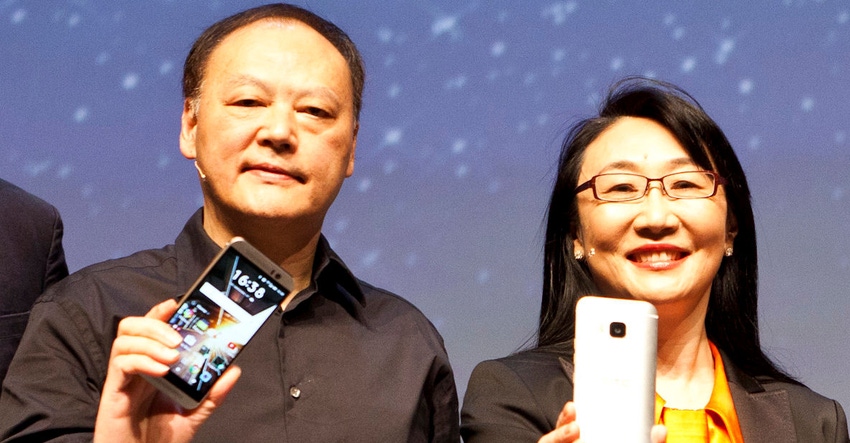Taiwanese smartphone maker HTC has concentrated all senior executive power in the hands of one person – Chairwoman and co-founder Cher Wang – after stripping Peter Chou of CEO responsibilities. The clear implication is that the Board thought Chou had taken the company as far as he could and it was time for a new direction.
March 20, 2015

Taiwanese smartphone maker HTC has concentrated all senior executive power in the hands of one person – Chairwoman and co-founder Cher Wang – after stripping Peter Chou of CEO responsibilities. The clear implication is that the Board thought Chou had taken the company as far as he could and it was time for a new direction.
“We are seeing rapid changes in the industry, with the smartphone as our personal hub connecting us to a growing world of smart devices,” said Wang. “We pioneered the smartphone industry; now we are applying that thinking to realize the potential of a new generation of connected products and services.
“The overwhelming response that our virtual reality product, HTC Vive, received earlier this month underlines the importance of these new connected technologies for our future. As an entrepreneur at heart, I am excited to see so many new opportunities, and I am honoured to accept this opportunity to help shape the next stage of HTC’s development.”
Reading between the lines of that statement it seems Wang was not convinced that Chou was the man to oversee the product diversification that is clearly part of HTC’s new strategy. When HTC unveiled the Vive VR product at MWC earlier this month it clearly thought it was a big deal. It remains to be seen how much mass market traction such a piece of kit can achieve, but as a statement of ambition and intent it’s a strong one.
HTC’s global smartphone market share peaked earlier this decade as it capitalized on its early advantages as an Android OEM, including being the manufacturing partner for the first Nexus phone. However, one the likes of Samsung got their act together with Android, their greater size, efficiencies and marketing spend resulted in rapid falls in global share for HTC, despite the continued high quality of its products.
There have been numerous accounts in recent years that Chou’s reportedly abrasive management style had disenchanted a number of other senior execs, and quite a few have moved on in that time. HTC has apparently concluded his strengths at a smartphone visionary compensated for any faults until now, but if the company is trying to move on from just being a smartphone specialist then Chou’s professional equity may be diminished.
Having said that Chou is staying with HTC to head up its Future Development Lab, which is responsible for identifying and exploiting new product opportunities, so maybe this move is primarily about culture change.
Wang has been increasingly involved in the day-to-day running of HTC since sales started moving in the wrong direction and may have concluded over this time that something needs to change in the way the company is run. She is quite an active philanthropist and may look to prioritise some of the more subtle needs of a company such as morale.
About the Author(s)
You May Also Like








.png?width=300&auto=webp&quality=80&disable=upscale)


_1.jpg?width=300&auto=webp&quality=80&disable=upscale)


.png?width=800&auto=webp&quality=80&disable=upscale)